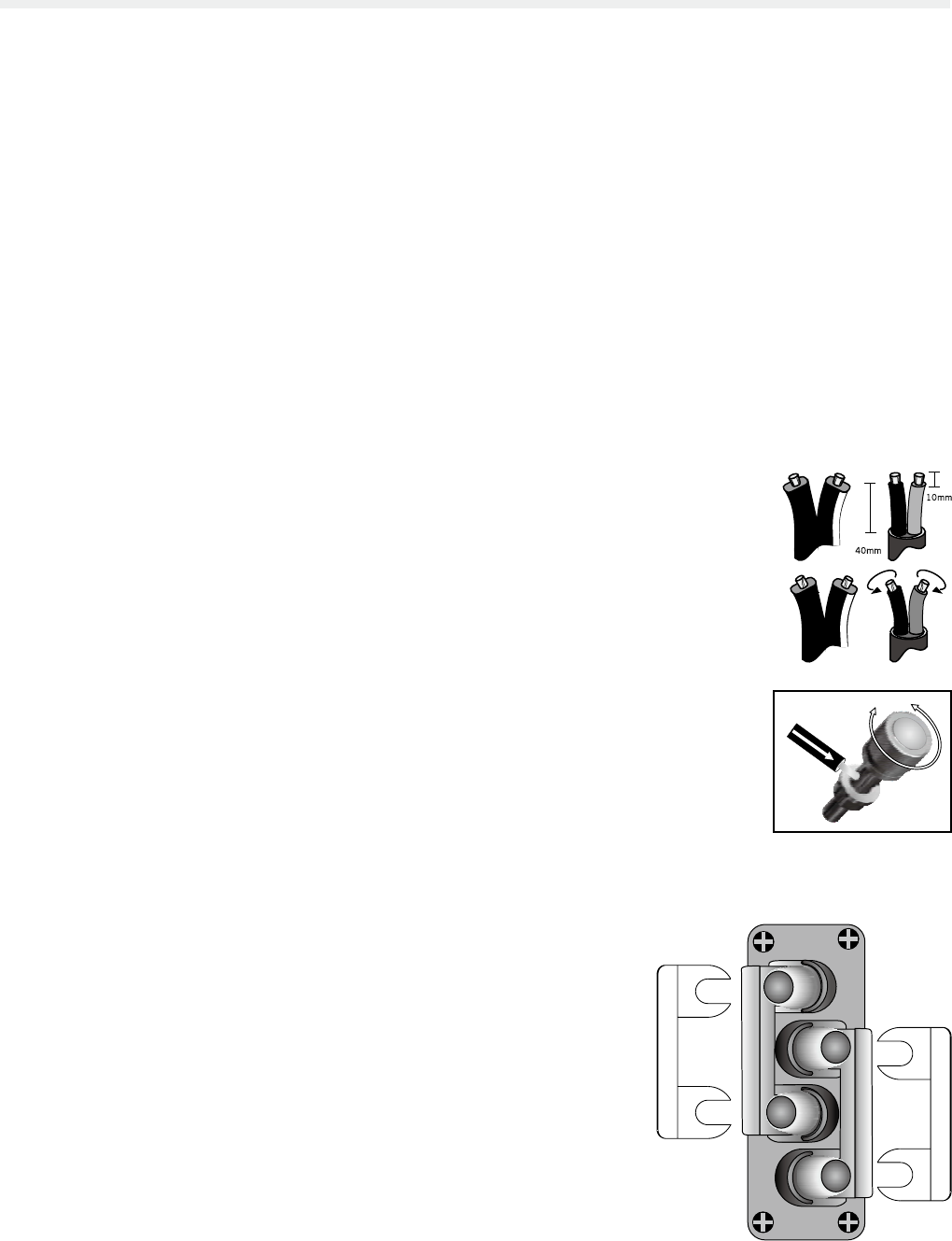
1
Stands and Brackets
The bookshelf loudspeakers are intended primarily for stand mounting, though they can be mounted on wall brackets or even on sturdy
shelves. The quality of loudspeaker stands greatly inuences the performance of your loudspeakers, please do not use imsy products.
Centre Channel Loudspeakers
Each centre channel loudspeaker is supplied with two sets of mounting feet. By using combination of large and small feet the loudspeaker may
be angled to point directly at the listening position. This will be found useful when the centre speaker is positioned under the TV screen.
Preparing the Diamond 100 Loudspeakers
Cables and Connectors
Choosing Loudspeaker Cable
Specialist audio cable usually oers beer performance than general purpose 'bell' or 'zip' wire.
Choose a cable of suitable diameter – cable that is too thin will limit the dynamics of the sound and may impair the bass response. Audio cable
is polarised, with two cores of dierent colours, or oen a raised rib or coloured tracer in the case of twin cable. Before you purchase your cable,
give careful thought to the positioning of your loudspeakers.
This is especially the case if you are bi-wiring your loudspeakers.
Cable lengths to loudspeaker pairs should be the same for le and right channels in order to equalise the signal
transmission. Allow some slack in your speaker cables so you can alter their position to best advantage.
Preparing Loudspeaker Cable
Split the twin cores to a depth of about 40mm. Carefully strip the insulation from each end, leaving about 10mm of
bare wire. If the cable is stranded, lightly twist to gather any loose strands.
Connecting Screw Terminals
All loudspeakers use screw terminals.
Unscrew the terminal. Insert the bare end of the cable into the hole in the base of the terminal. Tighten securely.
When connecting terminals make sure you leave no strands of bare wire that can short across to adjacent terminals.
As an alternative to bare wire you can use specialist spade connectors. Your Wharfedale dealer will be pleased to
advise you on this issue.
Crossover Networks
Bi-Wireable Networks
Most speakers in the Diamond 100 series use a special bi-wireable crossover panel with four
terminal binding posts. Please follow the drawing carefully to see the correct orientation of the
loudspeaker terminals. The upper terminals connect to the treble unit, the lower pair to the bass
unit. As supplied, the treble terminal pair is connected to the bass terminal pair via removable
metal straps. These should be le in place for standard installations.
Why Bi-Wire?
Using separate cables for treble and bass units in a bi-wiring configuration reduces
intermodulation eects and improves headroom and clarity. To bi-wire, you will need to install
two lengths of twin core cable between the amplier and each loudspeaker.














